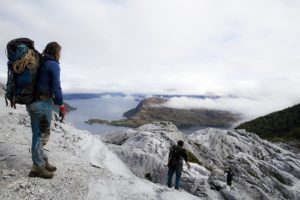Santiago, Mar 13 (EFE).- The Chilean government is intending to nominate the island of Madre de Dios before the UN Educational, Scientific and Cultural Organization (UNESCO) as a World Heritage Site.
The country’s longest cave, the unique limestone formations and the pristine Magellanic forests that cover a landscape eroded over the centuries are just some of the attractions on Madre de Dios and could be key elements in gaining the UN body’s approval.
Santiago’s decision is based on the conclusions reached by a French-Chilean expedition that spent two months on the multiple islets comprising Madre de Dios.
The leader of that expedition, Bernard Tourte, emphasized that the territory is “a marvel.”

“Madre de Dios island is a marvel on the surface. It’s … completely spectacular. For speleologists, whenever we explore, we do so in massifs of limestone, but a limestone area like Madre de Dios (is unique) in the world,” Tourte, president of the Centre Terre international cave-explorers organization, said.
He said that the geographical and meteorological conditions of the site, located about 2,000 km (1,200 mi.) south of Santiago, are unique.
Rocky compositions in improbable shapes “are formed by the influence of the weather (and) the amount of water that falls in that zone is very high. Ten meters (32.8 feet) of (precipitation) falls each year. That’s one of the highest … levels in the world,” Tourte said.
All these discoveries made by the expedition were presented earlier this month before Chile’s Ministry of National Patrimony.
Minister Felipe Ward welcomed the Centre Terre explorers and confirmed that Chile would be nominating Madre de Dios to UNESCO.
Ward said that the expedition had discovered the longest cave in Chile – 3.5 km (about 2.2 miles) – and he confirmed that Santiago will renew its agreement with Centre Terre to mount a new expedition in two years.
“It provides the opportunity to continue going deeper. There is scientific work, a natural archaeological wealth of cave paintings and limestone that exists nowhere else in the world and it has to be protected, cared for and shared,” the minister said.
